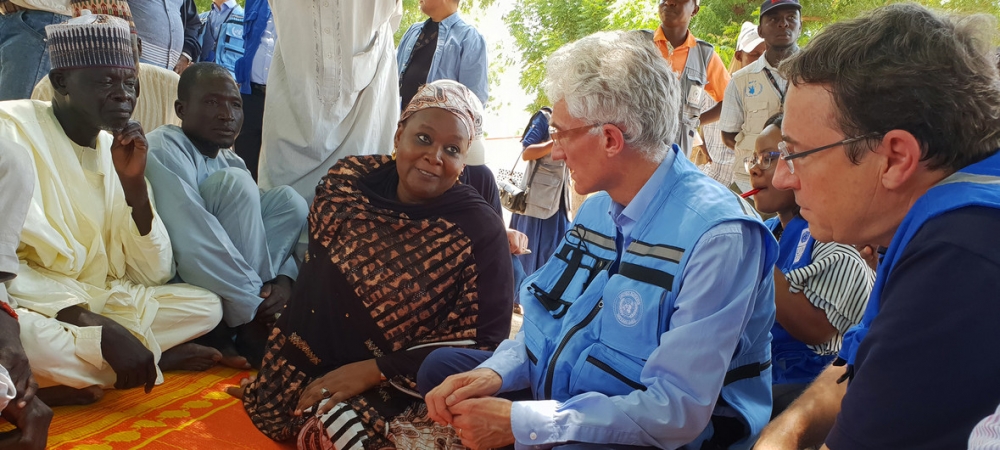More support needed to ease humanitarian crisis and rebuild lives in north-east Nigeria

After a two day visit to the region, UN Development Programme (UNDP) Administrator Achim Steiner and UN Emergency Relief Coordinator Mark Lowcock call for national and international partners to increase support for humanitarian relief efforts in north-eastern Nigeria. The aid is meant to help rebuild the lives of millions who have suffered from Boko Haram’s almost 10-year-long insurgency.
Now in its ninth year, the humanitarian crisis in conflict-ravaged northeast Nigeria has resulted in widespread displacement and continues to uproot the lives of thousands of children and families. According to the UN’s Office for the Coordination of Humanitarian Affairs (OCHA), since the start of the conflict in 2009, more than 20,000 people have been killed, up to 2.1 million people have fled their homes, and almost 1.7 million people are still internally displaced.
OCHA reported that in the three most affected states of Borno, Adamawa and Yobe, 7.7 million people are in need of humanitarian assistance, more than 50 per cent of whom are children. In response to the crisis, the government of Nigeria launched recovery initiatives in the region. UN agencies, NGOs, and non-profits are also providing assistance to those affected.
While visiting some of the most affected areas, UNDP Administrator Achim Steiner commented:
“We have a unique opportunity to make a real difference to communities across the north-east of Nigeria. Helping people affected by the crisis requires us to work together – humanitarian and development organisations alike – to tackle immediate humanitarian needs and the root causes of the crisis.”
According to OCHA, food security and the nutrition situation remains extremely fragile across the north-east, with up to three million people suffering from critical food insecurity. UN Emergency Relief Coordinator Mark Lowcock hopes that the aid provided by relief organisations will help “to save lives, help stabilise the situation, rebuild lives and communities for the future.”
The AIDF Africa Summit will return to Nairobi in February 2019.
If you’d like to stay informed on the latest updates in aid and development, please sign up for the AIDF newsletter.
Photo credit: OCHA/Eve Sabbagh














